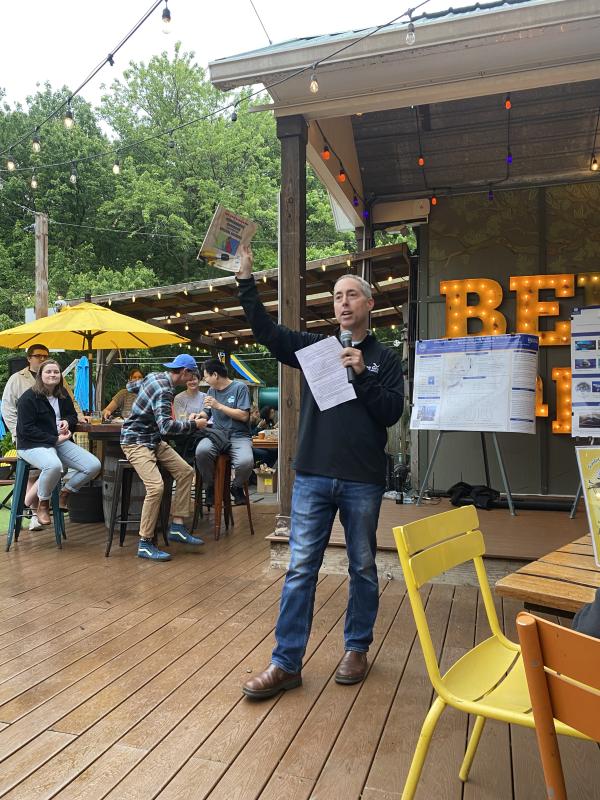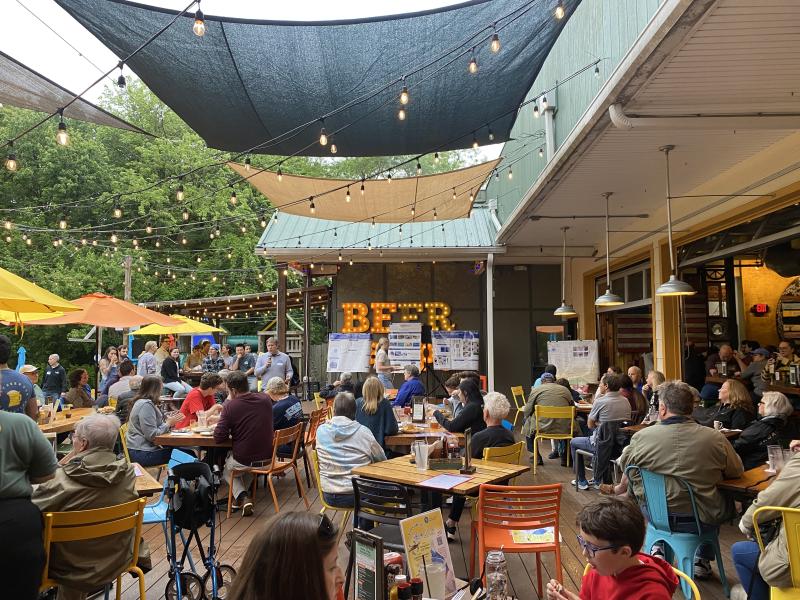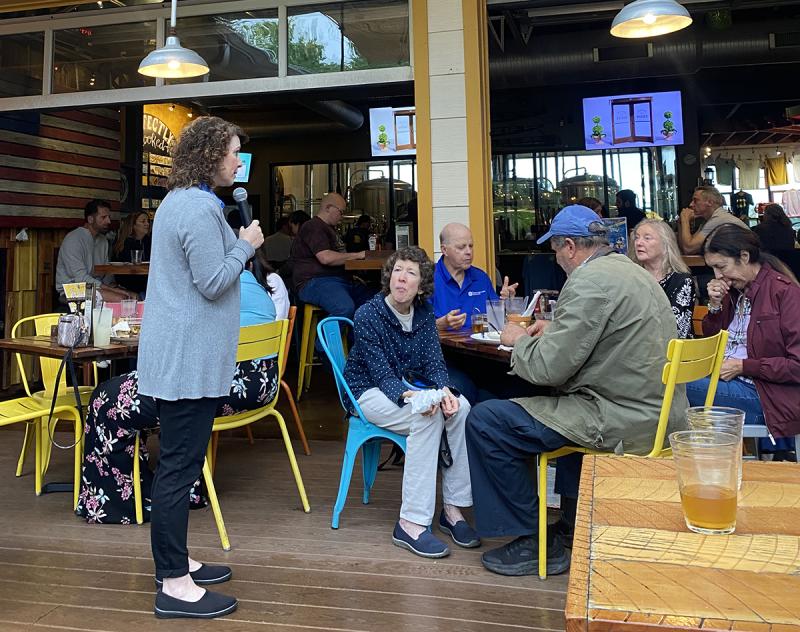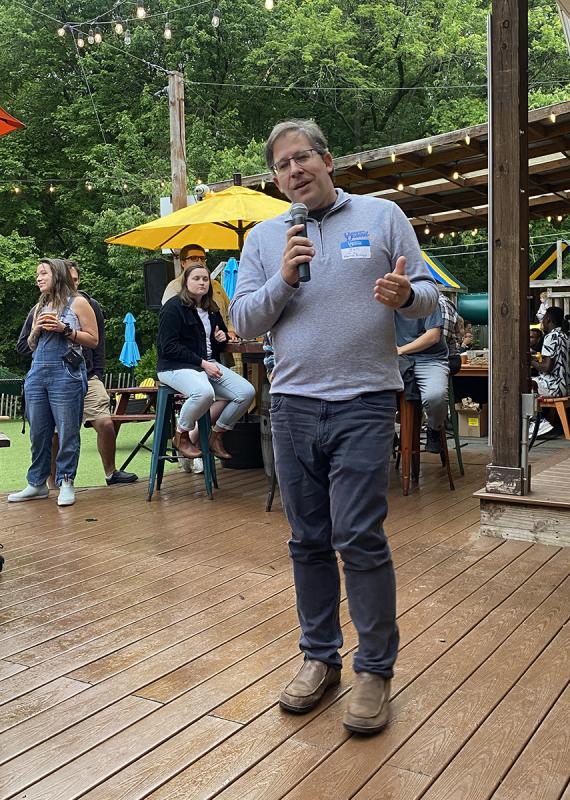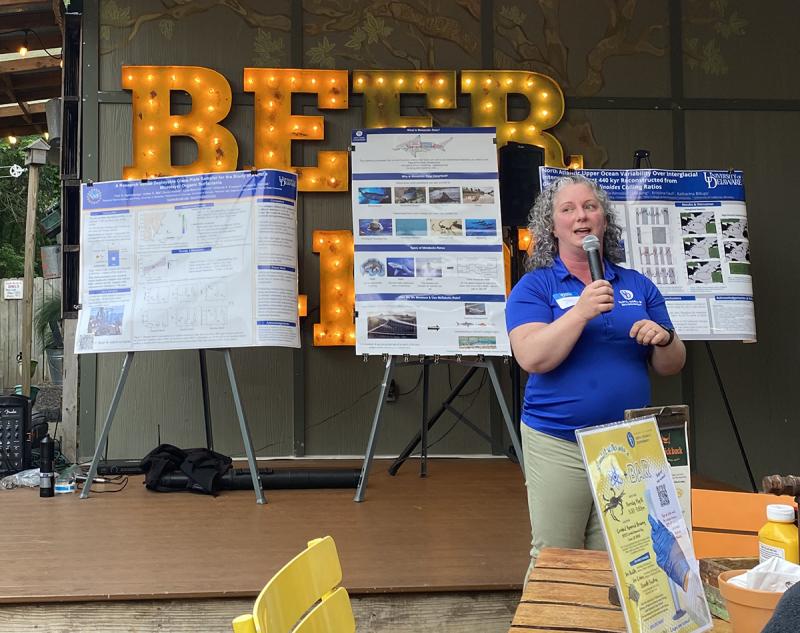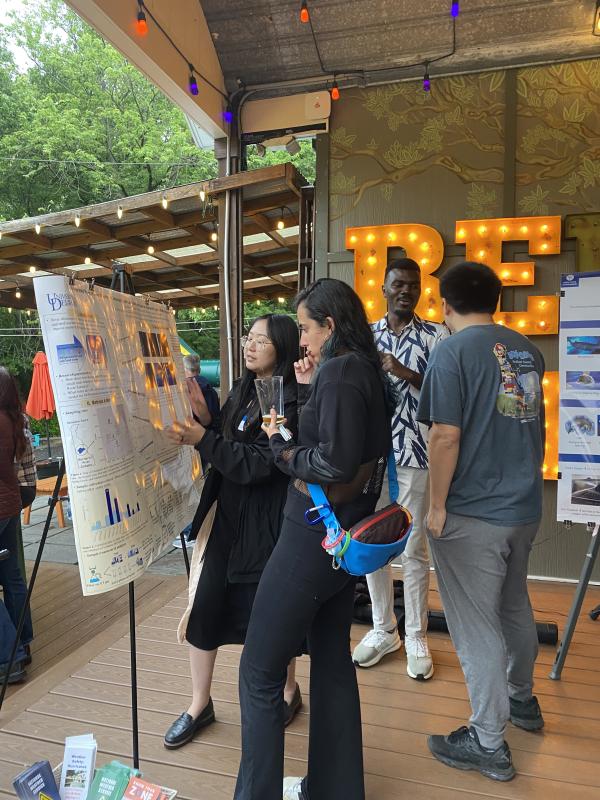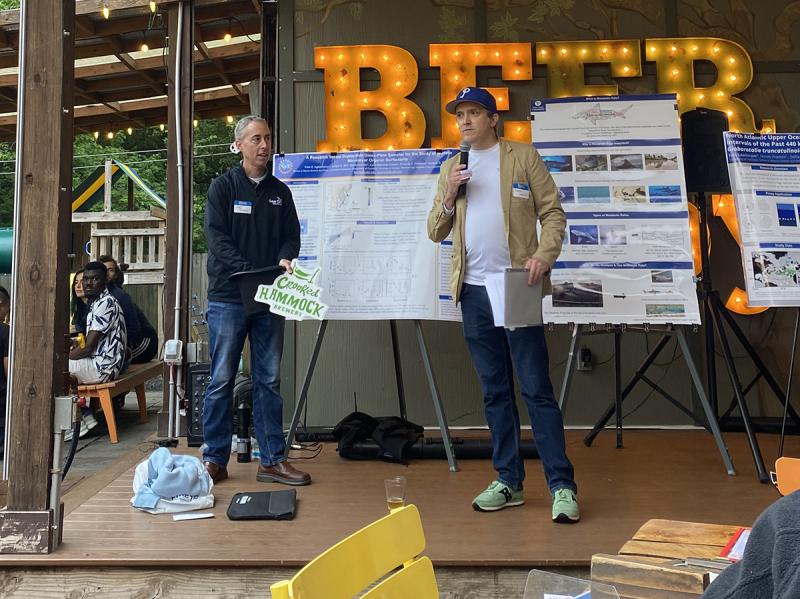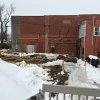The University of Delaware’s College of Earth, Ocean and Environment and Delaware Sea Grant held the first of a series of events called Scientist Walks Into a Bar.
Participants visited the Crooked Hammock Brewery outside Lewes to hear from UD’s School of Marine Science and Policy and Delaware Sea Grant. Between coastal jokes from assistant professor Andrew Wozniak, speakers discussed the ocean, sustainability and climate change. They also opened the floor for questions.
“Most people don’t know that we have this marine studies campus in Lewes,” said Chris Petrone, a marine science service director for Delaware Sea Grant. “We’re just try to engage more with the community, get our science out into the world.”
Jen Biddle, a professor of marine microbiology, discussed her exploration of uncultured microbes by analyzing local water quality and DNA in the environment. She also studies ways to restore seagrass, which oxygenates and maintains the pH levels of local waterways.
Biddle said people put the most pressure on local waterways due to aged septic systems that haven’t been tested since new regulations were introduced.
“We are trying to tell our state partners and talk to people about the fact that we have infrastructure problems in Delaware and that we have potentially a lot of leakage into local waterways,” Biddle said.
Danielle Swallow, a coastal hazards specialist with Delaware Sea Grant, explained that flooding is the top natural hazard in Delaware. As the state with the lowest mean elevation in the U.S., she said Delaware may see up to a foot-and-a-half of sea-level rise over the next 30 years.
“So when people say ‘lower, slower Delaware,’ I like to say lower in elevation, slower to drain,” Swallow said.
As an active hurricane season is on the prowl, Swallow recommends homeowners understand the elevation of their property, their proximity to a waterway, drainage patterns in their area and investing in flood insurance.
Jon Cohen, a professor of marine biology and the coordinator of UD’s undergraduate marine biology program, described how microplastics reach the ocean and their effects on marine life like crabs.
“Plastic has incredible properties,” Cohen said. “It’s just that when plastic waste is mismanaged, then it goes places where it shouldn’t.”
Cohen said it’s important to identify how to manage the fishery in a way that doesn’t harm the reproduction of blue crabs in the Chesapeake and Delaware bays. He suggests using less plastic and ensuring that the plastic waste produced doesn’t leave the waste stream.
At the end of the event, the hosts raffled off merchandise. Fifteen percent from all purchased food and beverages were donated to UD’s School of Marine Science and Policy with a digital voucher.
